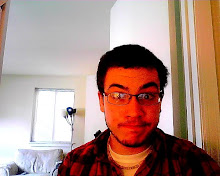Nuances
(for Paul Allen)
The occasion is a musical
recital. The hall is dark,
and full of quiet children.
All of us, children.
A computer projects an image
onto the wall; it tells
us Who, What, Why.
Black, man-sized letters shimmer
above us. The stage lies
under the light;
red and yellow – it is bare.
From the corner
of the stage come the performers.
They take their places,
young players caught in the hush
before their storm.
The man comes out. His shoulders
sag, his suit heavy.
He stands center, his face
bathed in flame from the projector.
The boy comes to stand in front of the man.
He raises his arms.
For a moment, they mirror,
two pairs of thick-rimmed glasses
reflecting the red light endlessly
between them.
Their shoulders fall away at the same angle.
The boy lowers his arms.
The light blinks out.
The man waits. All of us wait,
staring up at his hard face,
lit only by the small penlight he holds.
The man begins his poem,
giving us his words, giving
his voice to the air around
his children and our ears
and the thin night behind us.
The boy’s arms lift and he conducts,
his music spinning into the gaps
in the man’s voice.
It seems an age.
Man and boy.
Poet and musician.
The father and all of his children.
The music hums to a slow close
and the poem fills the silence;
‘Do you think a car can
Take two curves on its own?
Was chance kept it going,
Chance and the slant of the road.’
The boy’s violins come in.
They sing to us, sing of two sun-lit roads
which wind through the man’s growing
green mountain Spring.
One road takes us where he has been;
the other shows us where the boy will go.
